- Products
- Email Verifier Verify emails addresses individually, in bulk or through API, with 99% accuracy
- Email Finder Find individual or bulk emails by entering the person & company name or domain
-
Form Guard Protect your forms from spam, bots, and invalid submissions with real-time email, phone, and name verification.
- Prospect SQL/MQL list building with high levels of personalization, real-time data enrichment and prospect search
- Clearout For SheetsVerify email addresses directly on Google Sheets with Clearout for sheets add-on
- Prospect – LinkedIn Chrome ExtensionBuild verified, targeted prospect lists directly from LinkedIn profiles
- ClearoutPhoneValidate phone numbers across 240+ countries in bulk, quick or real time validation Free Tools
- Disposable Email Checker
- Reverse LinkedIn Profile Lookup Tool
- Reverse Email Lookup Tool
- Email List Cleaner
- ResourcesDEVELOPER
API
Clearout APIs are structured around REST and JSONWebhooks
Capture real-time events in your application workflowForm Guard
Real-time form validation to keep bad contacts out of your CRMKNOWLEDGE BASEGetting started
Sending campaigns without bounces is made simpleFAQ
Easily find answers to services, security and common questionsUSE CASESLead Generation
Learn how professionals generate quality leadsGUIDESPricingTransparent & flexible pricing to support pay-per-use or recurringCompare Email Verification Tools
AI-powered email verification with 99%+ accuracy, real-time validation, and transparent risk scoringCompare Email Finder Tools
Pre-verified B2B email addresses with confidence scoring, find real person email, not role-based addressBLOGSEmail Verification ToolsFind Anyone’s Email Address
Most Accurate, Fast & Free WaysForm Validation
Importance, Ways & Best PracticesView All Blogs - Pricing
- Integrations
- Enterprise
- Login
Dedicated IP vs Shared IP - Which One Is Better (Pros & Cons)
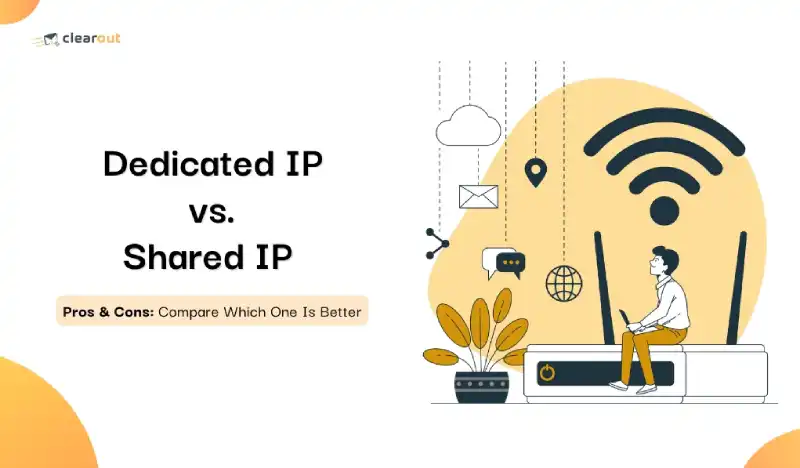
Your IP address plays a key role in email deliverability—it determines whether your emails land in the inbox or spam folder.
Email senders use either a shared IP (used by multiple senders) or a dedicated IP (used exclusively by one sender).
But is a dedicated IP better than a shared IP?
Most importantly, which one is the right choice for you?
In this blog we will break down the pros, cons, and best practices for both to help you decide. Let’s begin…
Email senders use either a shared IP (used by multiple senders) or a dedicated IP (used exclusively by one sender).
But is a dedicated IP better than a shared IP?
Most importantly, which one is the right choice for you?
In this blog we will break down the pros, cons, and best practices for both to help you decide. Let’s begin…
Table of Content:
What is a Shared IP Address?
A shared IP is an IP address used by multiple senders within the same pool, managed by an email service provider (ESP).
How Shared IP Works
- Emails from multiple senders are routed through the same IP address.
- The ESP manages the IP’s reputation, ensuring compliance with best practices.
- The IP’s reputation is influenced by the combined sending behavior of all users sharing it.
Pros of a Shared IP:
- No Warm-Up Needed – Shared IPs already have an established reputation, making it easier to start sending emails.
- Lower Cost – Typically included with most email marketing platforms without additional fees.
- Managed Reputation – ESPs monitor and maintain the IP's reputation to prevent blacklisting.
Cons of a Shared IP:
- Risk of Reputation Issues – If other senders misuse the IP, your deliverability could suffer.
- Less Control – You rely on the ESP’s ability to maintain a clean sending environment.
- May Not Be Ideal for High Volumes – Bulk senders may face throttling or rate limits depending on the ESP’s policies.
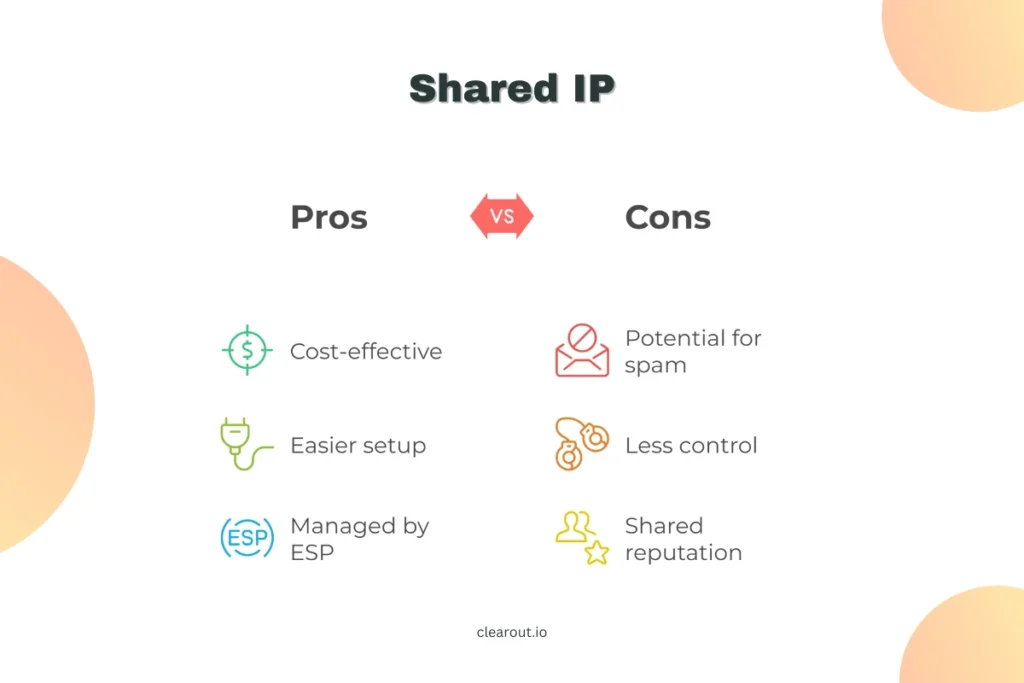
What is a Dedicated IP Address?
A dedicated IP is an IP address assigned solely to your domain, meaning only your emails are sent from it.
How Dedicated IP Works
- You are solely responsible for the reputation and performance of the IP.
- ISPs track your email activity exclusively when determining your sender's reputation.
- Proper warming up is necessary to build trust with email providers.
Pros of a Dedicated IP:
- Full Control Over Reputation – Since only your emails are sent from the IP, your sender's reputation is in your hands.
- Higher Deliverability Potential – If properly warmed up and maintained, a dedicated IP can improve inbox placement rates.
- Ideal for High-Volume Senders – Best suited for businesses sending over a high volume of emails per month.
Cons of a Dedicated IP:
- Requires Warm-Up – ISPs need to see a consistent volume before trusting your IP, requiring a ramp-up period.
- Ongoing Maintenance – You must maintain good sending practices to keep your reputation high.
- Higher Cost – Dedicated IPs come at a premium and are often available only with enterprise-level email services.
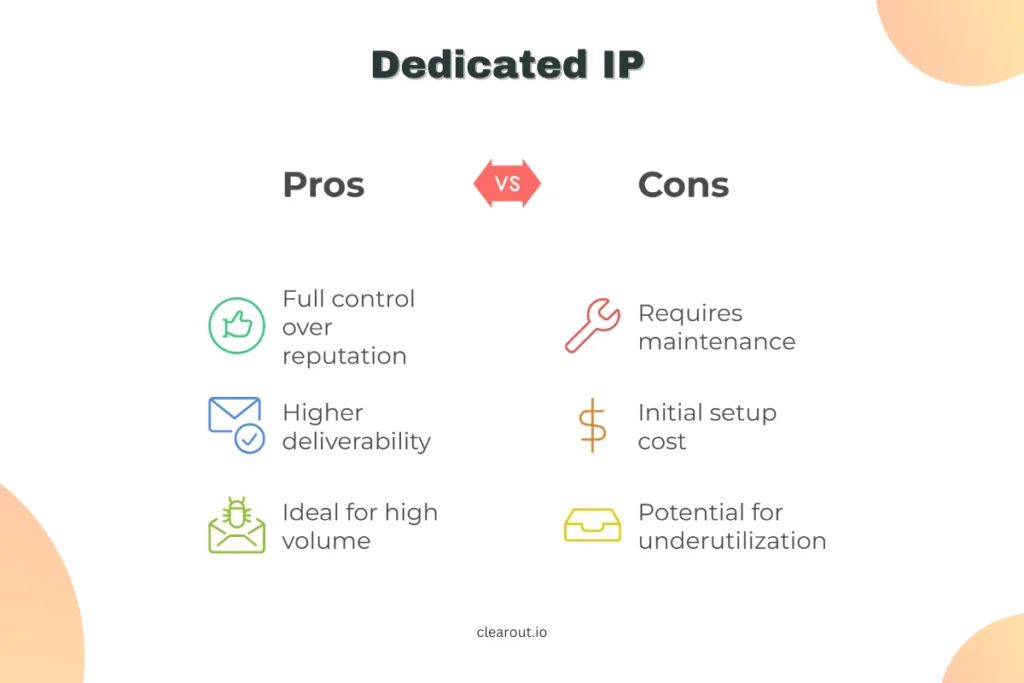
Is a Dedicated IP Better Than a Shared IP?
The best choice depends on your email marketing goals and sending volume.
When a Dedicated IP is Better:
- You send high volumes (100K+ emails per month) consistently.
- You want full control over your sender's reputation.
- You have the resources to manage and maintain proper sending practices.
When a Shared IP is Better:
- You send low to moderate volumes of emails.
- You want an easy setup without the need for IP warming.
- You prefer an affordable option with reputation management handled by your ESP.
Best Practices for Using a Dedicated IP
A dedicated IP offers full control over your sender reputation, but to truly maximize its benefits and avoid deliverability issues, you need a strategic approach. Here’s how to set up and maintain a high-performing dedicated IP:
1. Build and Maintain a Verified, High-Quality Email List
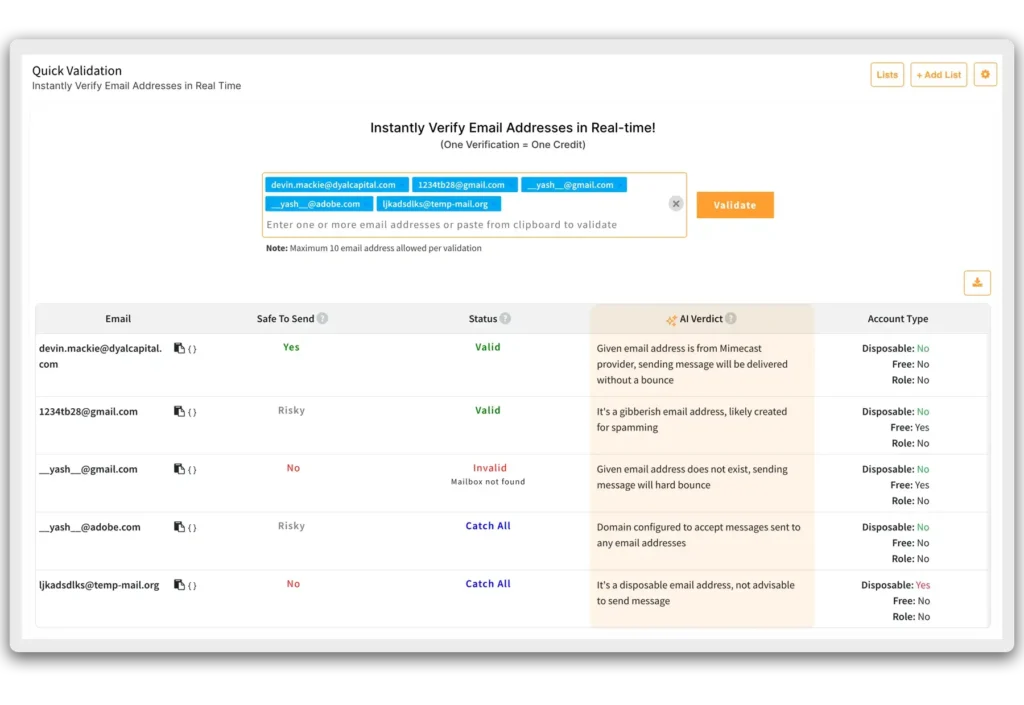
- Never send emails to unverified, or purchased lists—this will quickly damage your sender reputation.
- Use double opt-in to ensure subscribers genuinely want to receive your emails.
- Regularly clean your list using real-time email verification tools like Clearout to remove invalid, temporary, and role-based emails before hitting send.
2. Implement a Structured IP Warm-Up Plan
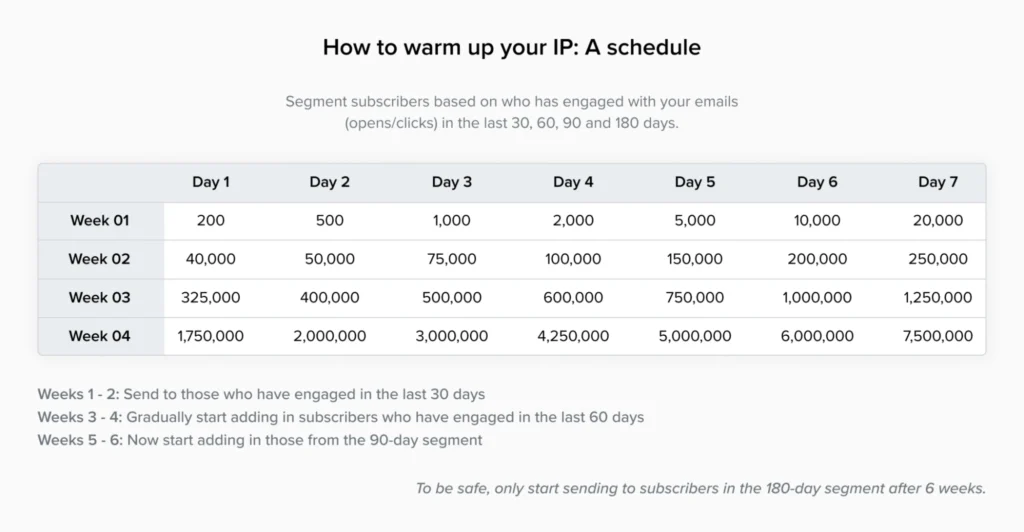
- ISPs need to see a consistent, growing email volume from a new dedicated IP to trust it. Start with a low sending volume (1,000–5,000 emails/day) and gradually increase over 2–4 weeks.
- Prioritize sending to highly engaged subscribers first to generate positive engagement signals (opens, clicks, replies).
- Avoid sudden spikes in volume—ISPs flag inconsistent sending patterns as potential spam behavior.
3. Strengthen Email Authentication to Build Trust
- Set up SPF, DKIM, and DMARC to prove your emails are legitimate and prevent spoofing.
- Implement BIMI to visually reinforce brand trust in inboxes that support it.
- Regularly monitor authentication failures using Google Postmaster Tools or Microsoft SNDS to ensure everything is properly configured.
4. Optimize Email Sending Infrastructure & Schedule
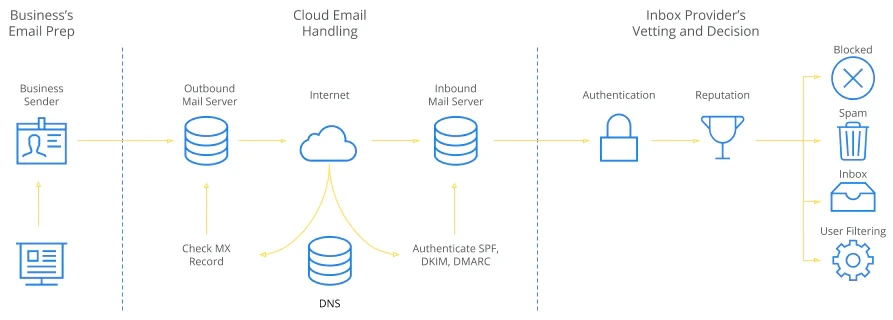
- Use a dedicated sending domain (separate from your primary domain) to isolate your email performance from your main website.
- Maintain a consistent sending schedule—random or infrequent sending can trigger spam filters.
- Keep an eye on bounce rates (stay below 2%) and spam complaints (stay below 0.1%) to maintain high deliverability.
5. Use Advanced Segmentation & Personalization
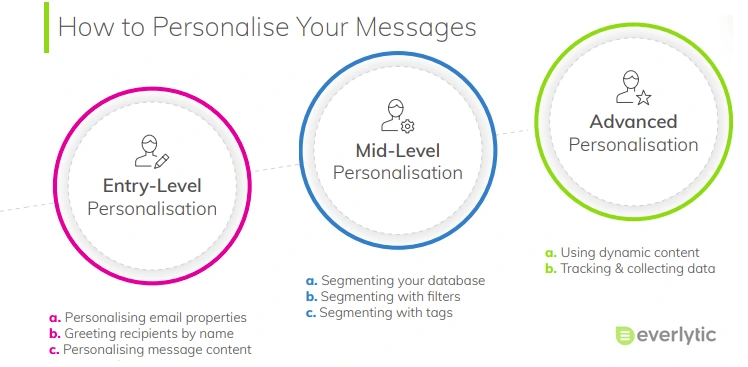
- Avoid mass-blasting emails—segment your list based on engagement history, behavior, and demographics to send more relevant content.
- Personalize beyond first names—use dynamic content based on subscriber interests, past interactions, and purchase history.
- Implement send-time optimization (STO) to deliver emails when each recipient is most likely to engage.
6. Proactively Monitor & Maintain IP Reputation
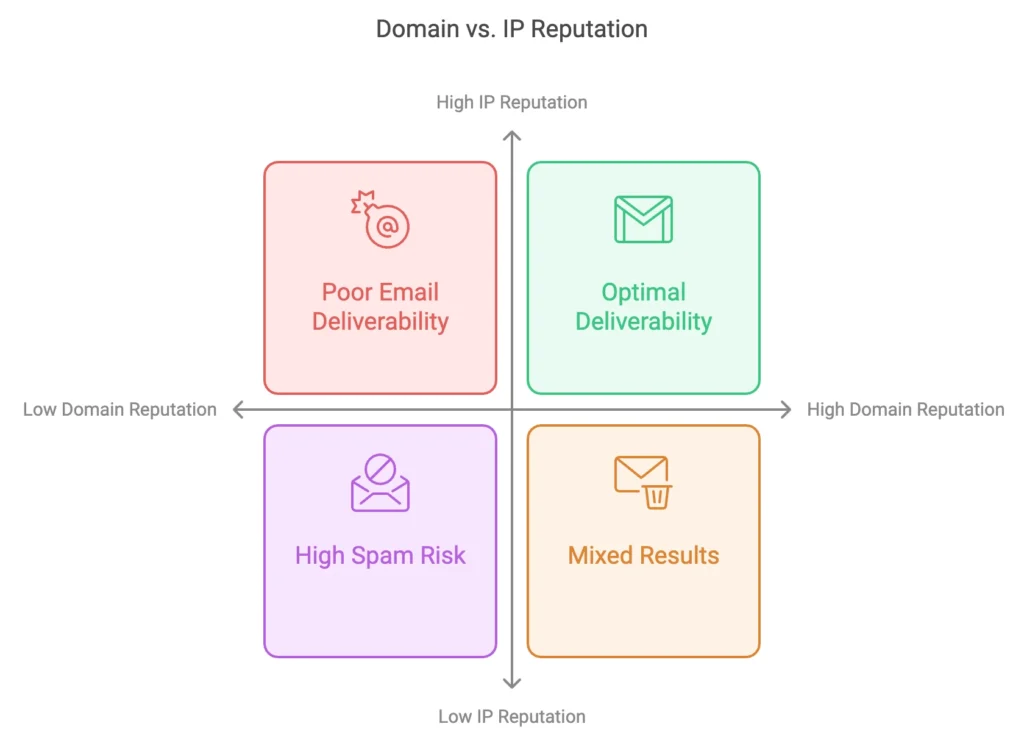
- Use tools like Google Postmaster Tools, Talos Intelligence, and SenderScore to track your IP reputation and catch issues early.
- Regularly check email blacklists (Spamhaus, Barracuda, etc.) to ensure your IP hasn’t been flagged.
- Implement feedback loops (FBLs) with major ISPs to process spam complaints in real-time and remove disengaged users from your list.
Best Practices for Using a Shared IP
Since a shared IP’s reputation is influenced by all senders using it, your goal is to maintain high engagement and avoid risky behaviors that could negatively impact deliverability.
1. Strictly Avoid Sending to Low-Quality or Unverified Lists
- Never buy, rent, or scrape email lists—this increases spam complaints and can trigger shared IP blacklisting.
- Build an organic list through content marketing, lead magnets, and opt-in forms.
- Use Clearout’s Email Finder and LinkedIn prospecting extension to create a targeted, pre-verified list of potential leads.
2. Maintain High Engagement to Boost IP Reputation
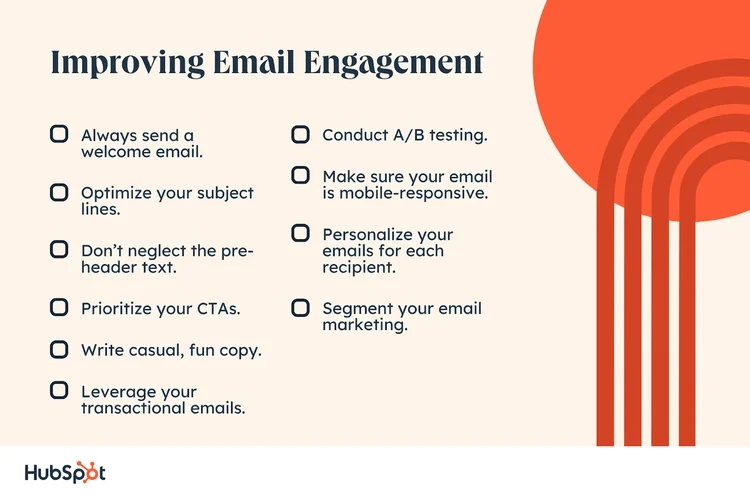
- Send emails to your most engaged subscribers first—positive engagement (opens, clicks, replies) improves email deliverability for the shared IP.
- Avoid emailing unengaged subscribers who haven’t interacted in months—this can lower your IP reputation.
- Implement re-engagement campaigns before removing inactive subscribers completely.
3. Follow Email Best Practices to Stay in Good Standing
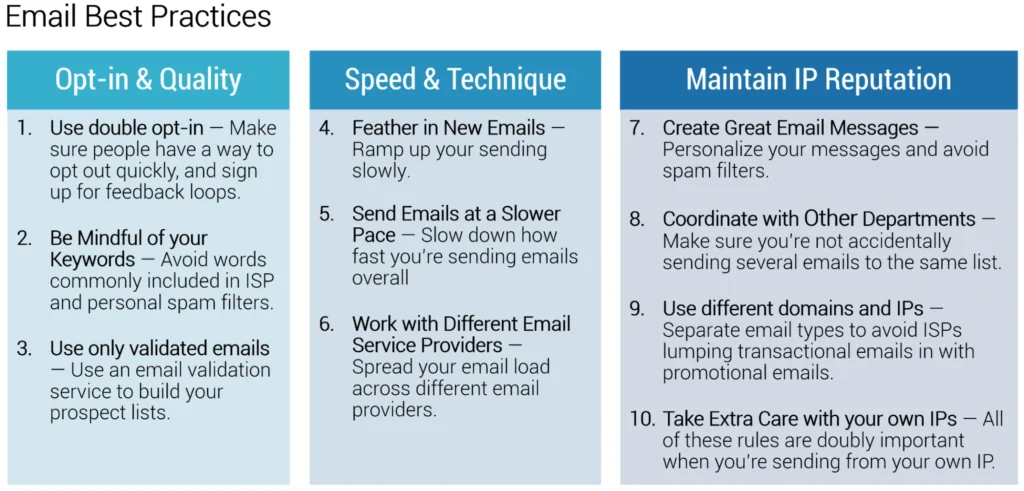
- Personalize your emails and avoid generic mass emails—low engagement can hurt the entire IP pool.
- Include a clear unsubscribe link to prevent recipients from marking emails as spam.
- Maintain a spam complaint rate below 0.1% to avoid damaging the shared IP’s reputation.
4. Stay Within ESP Guidelines & Sending Limits
- Different email service providers have daily/hourly sending caps to prevent abuse—exceeding these can result in throttling.
- Familiarize yourself with Gmail, Yahoo, and Microsoft sending rules, especially for bulk campaigns.
- Keep bounce rates low—remove hard bounces immediately to maintain a clean list.
5. Regularly Clean Your Email List
- Shared IP users need flawless list hygiene to avoid damaging the entire IP pool’s reputation.
- Use an email verification tools tool to remove bad email address types that can risk your campaign performance.
- Set up automated suppression lists to prevent resending to unsubscribed or bounced addresses.
By following these expert-level strategies, you can maximize email deliverability, protect your sender reputation, and get better results—whether using a dedicated or shared IP.
Which One To Choose Dedicated IP or Shared IP?
Both dedicated and shared IPs have their advantages, but the right choice depends on your email marketing strategy and volume. If you’re still unsure, start with a shared IP and move to a dedicated IP as your email needs scale.
Regardless of which IP type you choose, maintaining email best practices—like proper authentication (SPF, DKIM, DMARC) and list hygiene—is crucial for successful email deliverability.
Regardless of which IP type you choose, maintaining email best practices—like proper authentication (SPF, DKIM, DMARC) and list hygiene—is crucial for successful email deliverability.
Recent Posts
16 Feb 2026
WPForms Spam Protection: Features, Limitations & Alternatives
Explore how WPForms spam protection works, its limitations, and the best way to prevent fake, dispos ...
13 Feb 2026
Top 5 Findymail Alternatives Compared in 2026
Explore the best Findymail alternatives in 2026. Compare the features, pricing, reviews, and why Cle ...
12 Feb 2026
How Long Should a Cold Email Be? (2026 Guide)
How long should a cold email be in 2026? Explore ideal cold email length for different roles, why sh ...
02 Feb 2026
Email Finder vs LinkedIn Prospecting: Which to Use and When
Explore the list of 100+ spam-associated words to be cautious with in 2026, and see how modern email ...
29 Jan 2026
Dynamic Email Content: A Complete Beginner’s Guide (2026)
Discover what dynamic email content is, how it works, types, examples by industry, tools, benefits a ...
Clearout's
Form Guard
Validate email, phone & name on any forms!
- Real signups only
- Verified emails
- Valid phone numbers
- No fake names
- Cleaner CRM
- No devs needed
Email Verification, Email Finding Form Guard & Prospecting Service
Expand Your Reach By Finding & Verifying Ideal Prospects.

